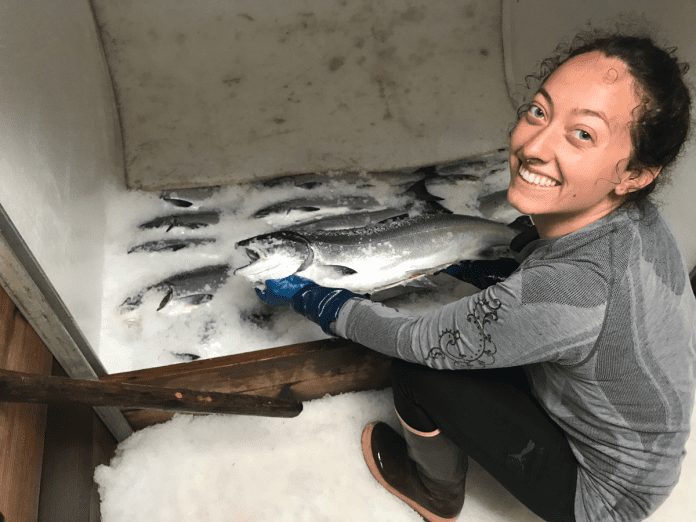
By Marie Rose
For The Cordova Times
Dear Alaska Fishermen:
A thick skin is required for this business. Direct competition is part of the job. To survive in this industry, you’ve got to let the race for fish, and the often-ugly politics of allocation roll off your Grundens.
That thick skin that I’ve built up is what allows me to stand up now and speak up for our industry and for what is right, even though I know those of us who are working to change the status quo aren’t necessarily always feeling a lot of love for it.
Change isn’t easy, and history shows it is always met with resistance. That said, it was change from the status quo that protected Alaska from nearly obliterating our salmon runs with fish traps prior to statehood. It was change from the status quo that led to our successful ban on salmon farms. In this moment of history, it will be change that prevents us from following in the footsteps of the Lower 48 and rest of the world, where irresponsible and incompatible development in salmon habitat led to the destruction and extinction of their runs.
“Yeah, but we are different in Alaska,” I often hear people say. But the truth is, when it comes to what we are allowing in terms of mega projects, urban sprawl and pollution in salmon country, we aren’t different at all. So why should we expect a different result up here in the last frontier if we knowingly repeat the same mistakes?
We’re already seeing our stocks decline. Now is our last chance to change course. Otherwise, we are navigating straight for the same salmon disasters seen from the Sacramento and the Columbia, where taxpayers spend hundreds of millions a year attempting to recover lost stocks. I know the advice the former commercial fishermen down in those parts would give us.
Ensuring that we have a law in Alaska that encourages responsible development that does not destroy our salmon and our salmon lives is the change we need. And, we need it now. As outside corporate interests push Pebble and other mega projects on us, we must act to ensure that our protections for salmon are truly world class. Right now, the law we have on the books is no different than what the state of Washington had when they dammed and decimated habitat on the once mighty Columbia River. It’s time for change.
We are small business owners who depend on reliable salmon to harvest. The multinational corporations who process our catch don’t care at all. They would just as easily run beef or any other product through their plants if salmon weren’t available. Our businesses, on the other hand, would be destroyed.
So would futures in commercial fishing, for young folks like me, who have the drive to make a living working in an industry that has provided for families in this state for generations. We are scraping to invest all we have into buying permits, boats and gear so that we can make salmon fishing our life’s work. We shouldn’t have to ask ourselves what we will do if measures are not taken to ensure salmon will remain a resource for us. We shouldn’t have to wonder what we would do if projects like the Pebble Mine paved their way into our state, potentially disrupting the very resource that has done nothing but give to this state and all who live here.
It’s time to speak up and be clear that as fishermen and Alaskans, we Stand for Salmon and we encourage fellow Alaskans to vote Yes for Salmon this November.
Salmon fishing represents hundreds of small businesses, thousands of jobs, millions of dollars in revenue, generations of subsistence, and full freezers for many Alaskans around the state. More than that, salmon fishing connects us to the land and to our resources. Standing for salmon means standing up for jobs, history, culture and a future defined by self-determination.
Marie Rose lives in Southeast Alaska and co-owns a business called Shoreline Wild Salmon, in which she bounces between working as a deckhand, small-scale fish-buyer, and marketer of troll-caught salmon.














